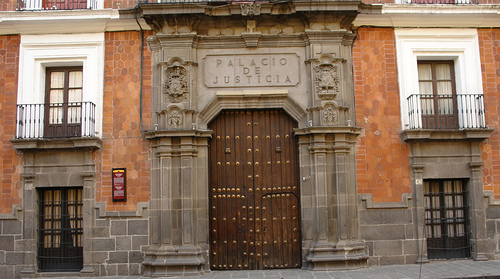Since 2006 our firm has employed two external consultants, one of whom has been instrumental in giving each lawyer (or group of lawyers) a large hand to play in the growth of one specific area. Our other consultant has developed a tangible career development programme and training programme, which have set achievable goals for the lawyers’ career progression.
Subsequently, in early 2008 we took on an experienced marketer to develop a Client Relations department within our firm. The prime focus of this area is twofold:
1. To maintain an excellent working relationship with our existing clients and to encourage their loyalty to our firm, and
2. To promote our expertise to a wide audience of potential clients, both in Mexico and abroad.
In addition to such internal hires, it will be essential for Latin American firms to follow the leading examples of new law firm management from the wider international legal community.
The problems of transforming an established work culture
The principal obstacle we have encountered has been the lawyers’ inherent resistance to change, and at times it has been difficult to add new elements to their job descriptions. If other firms in the region plan to re-organise themselves in a similar way, a serious level of buy-in and support will be needed from senior partners and department leaders.
The results of re-organisation
Latin American law firms are at the beginning of a long-term project in terms of introducing new modes of management; and the results won’t always be easy to measure.
Within Rivadeneyra, Treviño & de Campo S.C. we have already realised notable short-term gains, such as a greater cooperation between lawyers and a more relaxed working environment. We are also enjoying a wider presence and a more extensive (and international) client-list.
We have learnt a great deal from observing how other successful firms are organising themselves, and are open to discussing any of the issues discussed above in more depth.
About the Author:
Fernando Rivadeneyra is a Founding Partner at Rivadeneyra, Treviño & de Campo. He specialises in: Mergers & Acquisitions, Private International Law, Corporate Law and Foreign Investments. Fernando is a member of the International Bar Association, the Mexican-American Law Institute, and Export Support Group, and is Vice-President of the United States-Mexico Chamber of Commerce ““ Puebla Chapter. He has contributed articles to several publications and has spoken at legal conferences.
This article was written in collaboration with Jodie Paula Cohen, who is in charge of Client Relations at Rivadeneyra, Treviño & de Campo.
For further information, please contact: frivadeneyra@rtydc.com or jcohen@rtydc.com or visit: www.rtydc.com
Guest Blogger: Fernando Rivadeneyra, Puebla, Mexico
WAC? Note: Fernando Rivadeneyra is a Founding Partner at Rivadeneyra, Treviño & de Campo. He focuses on Mergers & Acquisitions, Private International Law, Corporate Law and Foreign Investments. Fernando is a member of the International Bar Association, the
International Business Law Consortium, the Mexican-American Law Institute, and Export Support Group, and is Vice-President of the United States-Mexico Chamber of Commerce ““ Puebla Chapter.
Reinventing the Latin American Law Firm
Some 3 years ago the founding partners of leading Mexican law firm, Rivadeneyra, Trevi̱o & de Campo S.A. de C.V. took a good look at the legal landscape Рand decided to radically improve the structure and management of our firm.
Our objective – to better position ourselves within an increasingly globalised legal sector – has already been admirably achieved by many overseas firms and legal departments. However, our position in Latin America brings with it different challenges, and implies fundamental changes to the way firms are traditionally organised in this region.
This article will give important insights to law firms who assist clients in Mexico, and legal counsel whose companies operate here. It will highlight the advances which are being made in the region, and what can be expected in the future.
Turning lawyers into pro-active business people
 In Latin America, lawyers have not historically been responsible for marketing and selling their services. Our firm’s lawyers are expected and encouraged to support our focus on both national and overseas expansion. By explicitly linking their economic incentives to the new clients they bring to the firm, and by training them in sales techniques, we hope to overturn a long-held tradition and engage our lawyers to become pro-active business people.

 When recruiting new people we search for the specific talents and experience which make strategic sense for our firm at any given time. The shortage which Latin American firms are currently experiencing is for bilingual lawyers with capabilities for cross-border deals.
Training and development to become global players
 Our training course for lawyers began in earnest at the start of 2009. Aiming to bring our lawyers’ skills and professional attitudes in line with those of the international legal community, it includes:
o Etiquette in business negotiations ““ this will enhance our lawyers’ sensibilities to cultures in other parts of the world, and hence facilitate business relations with overseas clients and firms.
o Diversity ““ this is a relatively new concept for Latin American law firms, and one which we expect will be of vital importance going forward.
o English language ““ fluency in English will continue to be a priority for Latin American law firms, to increase their access to overseas clients and enable them to participate on a global playing field.
 We will also work with our employees to enhance their perceptions of their work and of their place within the firm. We believe this will encourage consistently positive attitudes and enhance their dealings with clients.
A new concept in employee salaries
The salaries which we pay to our employees are an important acknowledgement of their efforts to help the firm achieve its business objectives; and we “˜pay’ this salary in three ways:
 The “˜economic salary’ is, essentially, money; it fulfils our employees’ physical needs – for food, a home, clothes, etc.
 The “˜psychological salary’ fulfils our employees’ desire for recognition and appreciation. Competition for excellent lawyers is as fierce in Latin America as anywhere in the world. One simple way we promote good feeling about the lawyers’ professional endeavours and encourage their loyalty to our firm, is to regularly highlight and praise their successes and useful contributions.
 The “˜spiritual salary’ gives employees a sense that their work is meaningful and worthwhile. Their pro bono work contributes to this, as will similar schemes which we plan to implement this year.
How can such fundamental changes be realised?
Since 2006 our firm has employed two external consultants, one of whom has been instrumental in giving each lawyer (or group of lawyers) a large hand to play in the growth of one specific area. Our other consultant has developed a tangible career development programme and training programme, which have set achievable goals for the lawyers’ career progression.
Subsequently, in early 2008 we took on an experienced marketer to develop a Client Relations department within our firm. The prime focus of this area is twofold:
1. To maintain an excellent working relationship with our existing clients and to encourage their loyalty to our firm, and
2. To promote our expertise to a wide audience of potential clients, both in Mexico and abroad.
In addition to such internal hires, it will be essential for Latin American firms to follow the leading examples of new law firm management from the wider international legal community.
The problems of transforming an established work culture
The principal obstacle we have encountered has been the lawyers’ inherent resistance to change, and at times it has been difficult to add new elements to their job descriptions. If other firms in the region plan to re-organise themselves in a similar way, a serious level of buy-in and support will be needed from senior partners and department leaders.
The results of re-organisation
Latin American law firms are at the beginning of a long-term project in terms of introducing new modes of management; and the results won’t always be easy to measure.
Within Rivadeneyra, Treviño & de Campo S.C. we have already realised notable short-term gains, such as a greater cooperation between lawyers and a more relaxed working environment. We are also enjoying a wider presence and a more extensive (and international) client-list.
We have learnt a great deal from observing how other successful firms are organising themselves, and are open to discussing any of the issues discussed above in more depth.
About the Author:
Fernando Rivadeneyra is a Founding Partner at Rivadeneyra, Treviño & de Campo. He specialises in: Mergers & Acquisitions, Private International Law, Corporate Law and Foreign Investments. Fernando is a member of the International Bar Association, the Mexican-American Law Institute, and Export Support Group, and is Vice-President of the United States-Mexico Chamber of Commerce ““ Puebla Chapter. He has contributed articles to several publications and has spoken at legal conferences.
This article was written in collaboration with Jodie Paula Cohen, who is in charge of Client Relations at Rivadeneyra, Treviño & de Campo.
For further information, please contact: frivadeneyra@rtydc.com or jcohen@rtydc.com or visit: www.rtydc.com
Since 2006 our firm has employed two external consultants, one of whom has been instrumental in giving each lawyer (or group of lawyers) a large hand to play in the growth of one specific area. Our other consultant has developed a tangible career development programme and training programme, which have set achievable goals for the lawyers’ career progression.
Subsequently, in early 2008 we took on an experienced marketer to develop a Client Relations department within our firm. The prime focus of this area is twofold:
1. To maintain an excellent working relationship with our existing clients and to encourage their loyalty to our firm, and
2. To promote our expertise to a wide audience of potential clients, both in Mexico and abroad.
In addition to such internal hires, it will be essential for Latin American firms to follow the leading examples of new law firm management from the wider international legal community.
The problems of transforming an established work culture
The principal obstacle we have encountered has been the lawyers’ inherent resistance to change, and at times it has been difficult to add new elements to their job descriptions. If other firms in the region plan to re-organise themselves in a similar way, a serious level of buy-in and support will be needed from senior partners and department leaders.
The results of re-organisation
Latin American law firms are at the beginning of a long-term project in terms of introducing new modes of management; and the results won’t always be easy to measure.
Within Rivadeneyra, Treviño & de Campo S.C. we have already realised notable short-term gains, such as a greater cooperation between lawyers and a more relaxed working environment. We are also enjoying a wider presence and a more extensive (and international) client-list.
We have learnt a great deal from observing how other successful firms are organising themselves, and are open to discussing any of the issues discussed above in more depth.
About the Author:
Fernando Rivadeneyra is a Founding Partner at Rivadeneyra, Treviño & de Campo. He specialises in: Mergers & Acquisitions, Private International Law, Corporate Law and Foreign Investments. Fernando is a member of the International Bar Association, the Mexican-American Law Institute, and Export Support Group, and is Vice-President of the United States-Mexico Chamber of Commerce ““ Puebla Chapter. He has contributed articles to several publications and has spoken at legal conferences.
This article was written in collaboration with Jodie Paula Cohen, who is in charge of Client Relations at Rivadeneyra, Treviño & de Campo.
For further information, please contact: frivadeneyra@rtydc.com or jcohen@rtydc.com or visit: www.rtydc.com
